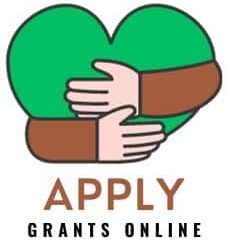Are you in college and feeling the pinch of expenses while trying to focus on your future career?
You’re not alone. I’ve been there and know how crucial financial support can be.
That’s why I’m here to discuss the top 5 college career advancement grant options and how you can get them.
What are College Career Advancement Grants?
College Career Advancement Grants are financial awards designed to aid in education and career development, particularly for those looking to advance or change their career paths post-graduation.
Explore our article on Grants for Living Expenses While in College to ease your financial journey through academia.
Top 5 College Career Advancement Grants

These are the Top 5 College Career Advancement Grants:
1. AAUW Career Development Grants
These grants support women pursuing career advancements. If you hold at least a bachelor’s degree and are a U.S. citizen or permanent resident, you might be eligible for this grant, which focuses on occupations where women are traditionally underrepresented.
2. Scholarships360 Career Development Grants
Offering a monetary range of $2,000 – $20,000, these grants assist college and graduate students. It’s important to check for application deadlines, like the expected one in November 2024, and start your application process early.
3. University of Chicago Internship Grants
Specifically for undergraduates at the University of Chicago, these grants support graduating students applying for Optional Practical Training (OPT) or work authorizations post-graduation—a crucial step for many in starting their career in the U.S.
4. Career-Specific Grants at Scholarships.com
For instance, the TEACH Grant awards up to $4,000 to prospective teachers. Remember, the grant becomes a loan if you don’t follow through with the teaching commitment.
5. U.S. Department of Education Initiatives
Recent programs like the “Career Z Challenge” focus on expanding work-based learning opportunities and course studies that align with emerging job markets.
How to Apply for College Career Advancement Grants

Follow these steps to apply for College Career Advancement Grants:
- Determine Your Eligibility: Ensure you meet specific criteria, such as being a permanent resident or citizen, and plan to enroll in qualifying educational programs or fields of study.
- Research Scholarships: Look for grants tailored to your career goals. The AAUW’s Career Development Grants support women pursuing education or credentials in non-traditional fields.
- Prepare Your Proposal: A thoughtfully prepared proposal is key to a competitive process. Outline how the grant will facilitate your career growth, re-entry to the workforce, or career change.
- Collect Application Materials: Compile all necessary documents, such as transcripts, resumes, and personal statements. Certain grants may require specific forms or letters of recommendation.
- Check the Deadline: Adhere strictly to application deadlines. Plan to submit well in advance to troubleshoot potential issues.
- Apply: Complete the application process, whether online or through mailed documents. For example, the University of Chicago offers several cycles of internship grants throughout the year.
- Follow-up: Stay engaged with the process. Confirm receipt of your application and be readily available to provide additional information if the grant committee requests.
Interested in STEM programs? Check out our STEM Grants for College article to learn about financial aid options.
Eligibility Criteria
These are the eligibility criteria to get College Career Advancement Grants:
- You must hold a bachelor’s degree to qualify.
- You must apply by August 1 and close November 15 annually.
Documents Required

These are the documents required to get College Career Advancement Grants:
- Application Form: A completed form provided by the grantor, often available on their website.
- Proof of Enrollment: An official document from your college confirming your full-time status.
- Resume: An updated copy highlighting your educational background, work experience, internships, and any relevant training.
- Transcripts: Your official academic transcripts to validate your educational achievements.
- Proposal: A detailed proposal explaining how the grant will support your career advancement, including the role of training, mentoring, and internships.
- Budget Plan: An itemized budget outlining how you will use the funds, which may cover expenses related to work-based learning opportunities.
- Recommendation Letters: Letters from professional or academic referees who can speak to your character and career aspirations.
Benefits of College Career Advancement Grants
These are the benefits of getting College Career Advancement Grants:
- Enhanced Performance: With these grants, you can access additional training and education.
- Financial Security: These grants alleviate the financial burden of further education.
- Career Flexibility: Gaining new credentials can open doors to advance within your current career or pivot to a new one.
- Employer Interest: When employers see that you’re dedicated to continuing your education, it can make you a more attractive candidate.
Frequently Asked Questions
These are the Frequently Asked Questions for College Career Advancement Grants:
How can individuals apply for college career advancement grants?
To apply for a college career advancement grant, locate opportunities that align with your academic and career goals, like those listed on the U.S. Department of Labor website, then follow the specific application instructions provided.
What types of federal grants are available for career development in college?
Federal grants for career development in college include programs like the Pell Grant, Federal Supplemental Educational Opportunity Grants (FSEOG), and the Workforce Innovation and Opportunity Act funding.
What are the eligibility requirements for the United States Career Advancement Program grants?
Eligibility requirements for United States career advancement program grants generally involve factors such as financial need, enrollment status in a qualifying institution, and maintaining satisfactory academic progress.
How do education grants offered by the U.S. Department of Education differ from other forms of financial aid?
Education grants, unlike the U.S. Department of Education, do not have to be repaid, unlike student loans.
What financial support options are there for college students facing hardship?
College students facing hardship have various financial support options, including federal grants, emergency assistance funds from their institutions, subsidized loans, and state-sponsored programs.
What are the major differences between grants and scholarships for college funding?
The major differences between grants and scholarships are their source and eligibility criteria. Grants, like the Career Development Grant, are need-based and provided by governmental agencies, while scholarships are merit-based or tailored to specific criteria such as academic achievement, background, or field of study.
Conclusion
College Career Advancement Grants unlock new possibilities and give you the extra boost to level up in your career.
So, take the leap, apply for these grants, and watch as your career trajectory takes on an exciting new direction.


